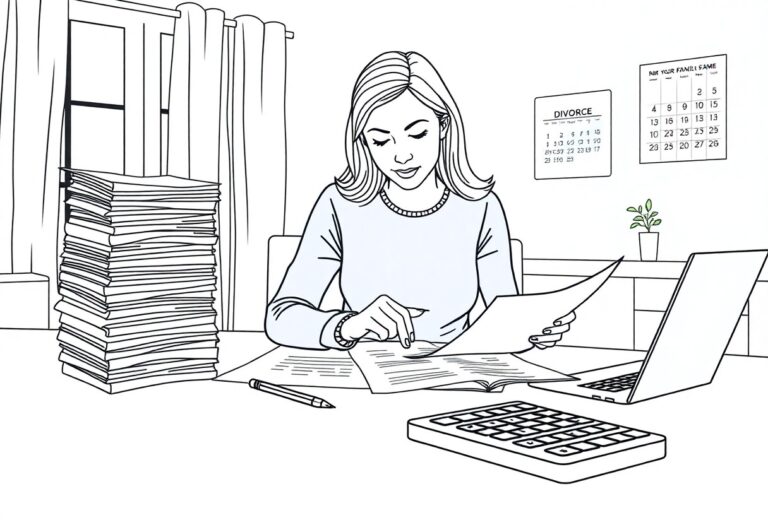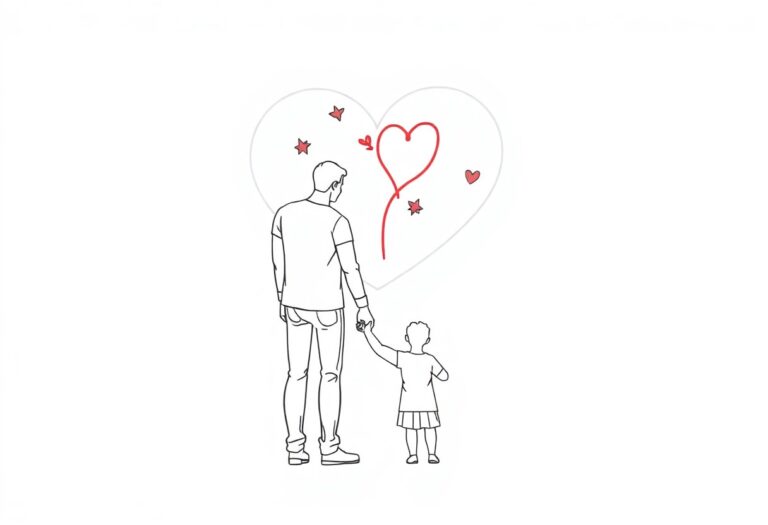Emotional Stages of Divorce – What to Expect and How to Heal
Confusion often accompanies divorce, leading you through a rollercoaster of emotional stages that can feel overwhelming. Understanding these stages is vital for navigating your journey to healing. This guide on divorce emotional stages and healing guide outlines what to expect during this challenging time, helping you identify your feelings and embrace growth. By acknowledging your emotions and utilising effective strategies, you can move forward with hope and resilience as you rebuild your life.
Key Takeaways:
- The emotional process of divorce typically unfolds in several stages, including denial, anger, bargaining, depression, and acceptance.
- Your feelings during this time can fluctuate significantly, making it imperative to be patient with yourself as you navigate through each stage.
- Connecting with a support network, whether through friends, family, or professional therapy, can provide comfort and guidance as you cope with the emotional challenges of divorce.
- Engaging in self-care practices, such as exercise, mindfulness, and healthy eating, can contribute to your healing and overall well-being during this period.
- Over time, it is possible to rebuild your life and find new opportunities for happiness and fulfilment post-divorce.
Understanding the Emotional Stages of Divorce
While navigating through a divorce, it is vital to recognise that you will likely experience a spectrum of emotions. This journey can be tumultuous, and understanding the various emotional stages can help you prepare for what lies ahead. Acknowledging feelings of grief, anger, and eventual acceptance is vital to your healing process, allowing you to process your divorce in a healthier way.
How to Identify the Stages
Stages of emotional change during divorce may manifest in different ways, making it important for you to pay attention to your feelings. You might find yourself oscillating between intense emotions such as sadness and relief, often correlating with the progress you are making in accepting your new reality. By identifying these stages, you can better understand your emotional landscape.
Tips for Coping with Emotional Challenges
With the emotional challenges of divorce, it’s vital to arm yourself with strategies to facilitate healing. Consider establishing a strong support system by reaching out to friends and family, journaling your feelings to process them, and practising self-care techniques that promote well-being. Here are some tips to help you cope:
This divorce emotional stages and healing guide will assist you in understanding the emotional complexities and provide resources for a smoother transition.
- Establish a routine that promotes stability.
- Engage in physical activity for mental well-being.
- Allow yourself to grieve and embrace your emotions.
- Seek professional help when necessary.
After implementing these coping strategies, you may find yourself feeling more empowered and resilient in the face of emotional challenges.
With a focus on practical strategies, you can ease the emotional burden of your divorce. Engaging in activities such as mindfulness or meditation can help ground you, while connecting with others who have experienced similar situations may offer a valuable perspective. Here is a list of actionable steps for better emotional health:
- Create a support network of understanding friends or family.
- Maintain a healthy lifestyle through nutrition and exercise.
- Explore hobbies that bring you joy and fulfilment.
- Set realistic goals for yourself during this transition.
After integrating these tips into your daily life, you’ll likely find the emotional landscape of your divorce becoming more manageable.
Factors Influencing Emotional Responses
Clearly, your emotional responses during divorce can be shaped by various factors, including your background, support system, and the circumstances surrounding the separation. Understanding these elements can help you navigate your feelings more effectively. Key influences include:
- Personal history
- Relationship dynamics
- Support network
- Life obligations
Perceiving these factors can empower you to manage your emotional journey more effectively.
How to Assess Personal Circumstances
Little adjustments in your perspective can make a significant difference in how you experience the emotional stages of divorce. Start by reflecting on your own feelings, behaviours, and support needs. Consider evaluating your:
- Emotional readiness
- Life environment
- Support availability
Your internal landscape will inform how you process and heal from this significant life change.
Tips for Navigating External Influences
Even external factors can contribute to your emotional landscape during divorce. To manage outside influences effectively, consider implementing the following strategies:
- Communication boundaries
- Social media awareness
- Seeking professional advice
Assume that staying informed and proactive will help lessen the emotional impact that external factors have on your healing process.
Plus, understanding and mitigating external influences can significantly enhance your emotional resilience. Look out for negative comments or stressful situations that may arise from friends or family during this time. Prioritise positive relationships and be selective about whom you share your feelings with. Consider involving a therapist to provide professional guidance. Assure yourself that fostering a positive environment is possible with intentional choices.

Strategies for Healing
Unlike the belief that healing from a divorce is solely a time-based process, it requires intentional strategies that foster emotional recovery. Embracing self-compassion, engaging in mindfulness, and surrounding yourself with a supportive network can significantly aid in navigating your healing journey. Each individual’s process is unique, so exploring various techniques will help you discover what resonates best with you.
How to Create a Support System
You need a robust support network to help you through this challenging period. Start by reaching out to close friends and family members, or consider joining a support group where you can connect with others who share similar experiences. Establish open lines of communication where you can express your feelings, receive encouragement, and provide support in return, fostering a sense of community.
Tips for Self-Care and Recovery
To promote your emotional recovery during this time of transition, prioritise self-care practices that nurture your well-being. Here are some effective tips:
- Engage in regular exercise to boost your mood.
- Explore mindfulness techniques such as meditation or yoga.
- Ensure you maintain a balanced nutrition to support your emotional health.
- Set aside me-time for hobbies and relaxation.
Recognizing that your well-being should come first will empower you to heal and rebuild a fulfilling life.
With a proactive approach to self-care, you can create a solid foundation for your healing journey. Focus on activities that bring you joy and peace, and seek out experiences that foster personal growth. Prioritise these necessary self-care strategies:
- Develop a consistent routine to provide stability.
- Practice gratitude daily to shift your mindset.
- Explore creative outlets like writing or art for emotional expression.
- Consult with a therapist or counsellor to process your feelings.
Recognising the importance of nurturing your mind and body will not only aid in your recovery but also pave the way for a healthier future.
Moving Forward
Now that you’ve processed your emotions, it’s time to focus on moving forward. This means embracing the changes in your life, allowing yourself the opportunity to grow and discover new possibilities. You may find new interests or strengthen existing ones. This chapter of your life is not about forgetting the past, but using it as a springboard toward a healthier and happier future.
How to Set New Goals
Now is the perfect moment to redefine what you want from life. Setting new goals will provide you with direction and purpose. Start by identifying your values and aspirations, whether they involve personal growth, career advancement, or new relationships. Break your goals down into manageable steps, making it easier to track your progress and keep your motivation alive.
Tips for Embracing Change
One effective way to embrace change is to shift your mindset. View change as an opportunity rather than a setback. Here are some tips to help you through this transition:
- Practice gratitude for the lessons learned.
- Surround yourself with supportive people who uplift you.
- Engage in self-care activities that nourish your spirit.
You can leverage these strategies to foster resilience and adaptability in your new life.
Another important aspect of embracing change is accepting that it takes time to adjust. You might face challenges, but it’s vital to remain committed to your personal growth. Consider the following ways to help you navigate this journey:
- Journaling can clarify your thoughts and feelings about change.
- Developing new habits can create a sense of stability.
- Exploring new hobbies can foster a sense of joy and discovery.
You can transform your outlook and build a fulfilling life beyond divorce, one step at a time.
Seeking Professional Help
Many individuals undergoing divorce find that seeking professional help can be a transformative step in their healing journey. A therapist can provide a safe space to express feelings, explore underlying issues, and develop coping strategies. They can guide you through the emotional turmoil associated with the divorce process, equipping you with tools necessary for recovery and personal growth.
How to Find a Therapist
The search for a therapist can feel daunting, but it can start with recommendations from friends or family. You can also explore resources such as online directories or local mental health organisations. Look for therapists who specialise in divorce or relationship issues and check their credentials to ensure they meet your needs.
Tips for Maximising Therapy Sessions
Any time spent in therapy can be more effective if you approach it with the right mindset. To maximise your sessions, consider the following:
- Set clear goals for your therapy.
- Be open and honest about your feelings and thoughts.
- Prepare questions or topics you want to discuss.
- Practice active listening to your therapist’s feedback.
- Commit to doing any homework assigned between sessions.
Perceiving therapy as a partnership will enhance your progress and help you get the most out of each session.
Understanding how to maximise your therapy sessions involves a commitment to self-reflection and open communication. Establishing a trusting relationship with your therapist, as is being proactive about your healing, is necessary. Here are additional ways to enhance your therapy experience:
- Be consistent in attending your appointments.
- Keep a journal of your thoughts and feelings to discuss.
- Stay focused on your progress, even when it’s gradual.
- Ask for feedback on your growth from your therapist.
- Practice self-care in your daily life.
Perceiving the role of therapy as a necessary part of your healing journey will empower you to embrace the process fully and facilitate deeper recovery.
Summing up
With these considerations, you can navigate the emotional stages of divorce more effectively, understanding what you may experience as you move through this challenging period. Acknowledging your feelings, seeking support, and practising self-care are vital steps in your healing journey. Embracing the process and allowing yourself the time to adapt will empower you to emerge stronger and more resilient. Trust that healing is a gradual journey, and take proactive steps towards your emotional well-being as you redefine your life beyond divorce.
FAQ
Q: What are the common emotional stages one goes through during a divorce?
A: The emotional journey of divorce typically includes several stages. These can include denial, anger, bargaining, depression, and acceptance. Each person’s experience is unique, and while these stages may unfold in this order for some, others might experience them differently or revisit earlier stages throughout the process.
Q: How can I manage the feelings of anger and sadness associated with a divorce?
A: Managing feelings of anger and sadness is imperative for healing. It can be helpful to express these emotions through journaling, talking with friends or family, or seeking support from a therapist. Engaging in physical activity, practicing mindfulness or meditation, and exploring new hobbies can also aid in channeling these emotions constructively.
Q: Is it normal to feel relieved after a divorce?
A: Yes, feeling relief is a common response after a divorce. Many individuals experience a mix of emotions, including relief, especially if the marriage was fraught with conflict, unhappiness, or incompatibility. Acknowledging this relief, alongside other feelings, is part of the healing process and indicates a potential for moving forward positively.
Q: How long does it typically take to heal emotionally after a divorce?
A: The timeline for emotional healing varies significantly from person to person. Some may start feeling better within a few months, while others may take years to fully process their emotions and move on. Factors that influence this timeline include the length of the marriage, circumstances surrounding the divorce, personal coping mechanisms, and the availability of support systems.
Q: What steps can I take to support my emotional healing after a divorce?
A: Several steps can aid in emotional healing post-divorce. Establishing a support network of friends, family, or support groups is beneficial. Engaging in self-care practices such as exercise, healthy eating, and adequate sleep can promote well-being. Additionally, seeking professional counselling can provide guidance and coping strategies. Setting new personal goals and focusing on self-growth is also vital for moving forward.
Separation and divorce | Dating after divorce | Parenting After Divorce | how does divorce mediation work








